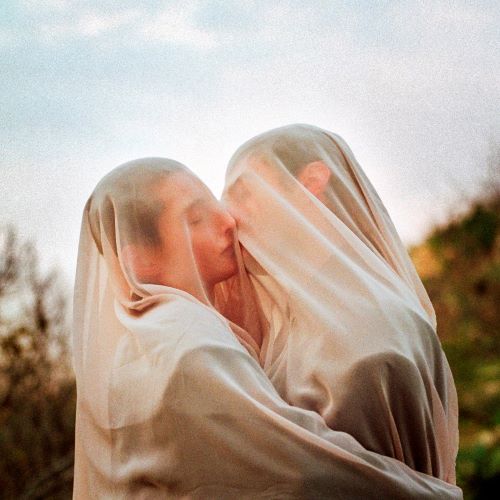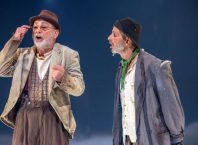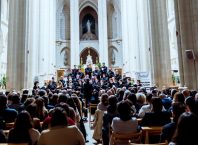
Fans of the Israeli Opera like myself, have delighted in its several recent original productions, such as Theodor, composed by Yonatan Cnaan, directed and with a libretto by Ido Riklin, a bold look at the visionary of the Jewish State, and Hanoch Levin – The Opera, with five composers – Yossi Ben Nun, Yonatan Cnaan, Yonatan Keret, Ronnie Reshef, and David Sebba, providing musical insight into Levin’s works. Coming this April is another exciting new production, with multi-disciplinary artist Yehezkel Lazarov making his Israeli Opera directing debut, offering his own perspective on Christoph Willibald Gluck’s Orfeo ed Euridice. Performances will take place from April 7 – 19, 2024, with Italian conductor Matteo Beltrami coming to the Israeli Opera for the first time to conduct this production of Orfeo ed Euridice.
Considered Gluck’s most beloved opera, Orfeo ed Euridice, composed in 1762, is based on the romantic tale of Orpheus in Greek mythology. Poet, musician, and prophet, Orpheus possessed the gift of charming all living things with his music. Although there are many stories of Orpheus, the best-known today is the tragic loss of his wife, Euridice, who was bitten by a viper. His grief was so great that he could not accept her death, and Orpheus boldly ventured into the underworld to bring back his love. He pleaded with Hades for Euridice’s return to life, and Hades ultimately agreed, setting a difficult condition. Orpheus must walk out of the underworld ahead of Euridice and not look back until they reach the upper world. The temptation was too great, and Orpheus looked back too soon, dooming Eurydice to an eternal sojourn in the underworld. Set to a libretto by Ranieri de’Calzabigi, in Orfeo ed Euridice Gluck expressed his emphasis on the dramatic narrative as the opera’s essential core, with music and lyrics working to convey the story and its emotional landscape. There is an emphasis on simplicity and clarity of storytelling, with music and lyrics that express the character’s feelings.
Director Yehezkel Lazarov comes to the opera with an impressive résumé as an actor, dancer, choreographer, director and set designer. Lazarov commented on his process with Orfeo ed Euridice: “It was important to me throughout the creative process to identify not only with the myth, but with the characters’ feelings. Gluck’s music is beautiful and moving, and although the audience will be held in the sway of the beautiful sound of the singer’s voices, I want them to truly experience the story through the art of voice, that unique talent with which Orpheus was gifted, and which aided him in his quest to save his beloved.”
Lazarov interprets Orfeo ed Euridice from different perspectives. As a story of human struggles and emotions, he views Orpheus as an artist searching for his inner voice, during a time of heart-breaking loss, asking the question – can an artist exist without his art? Conceptually, he views the opera as reflecting the healing power of music. From a socio-political perspective, Lazarov observes the longing one experiences, and difficult journey one undertakes in order to bring back our loved ones from the darkness of hell, a theme sadly relevant in these times.
Director Lazarov also designed the sets for Orfeo ed Euridice, and in keeping with the romantic theme of the opera, Elin Lazarov, his partner in life and work, designed the costumes. The creative team includes Choreographer Mor Shani, Lighting Designer Nadav Barnea, and Video Editor and Photographer Ran Slavin. Soloists performing in the opera will be Nicholas Tamagna alternating with Jan Jakub Monowid as Orfeo; Alla Vasilevitsky alternating with Shaked Strul as Euridice; Tal Ganor alternating with Tom Cohen as Amor. The conductor Rotem Nir will conduct two of the opera’s performances of Orfeo ed Euridice. The opera will be sung in Italian.
Additional information and tickets may be found on the Israeli Opera website.





